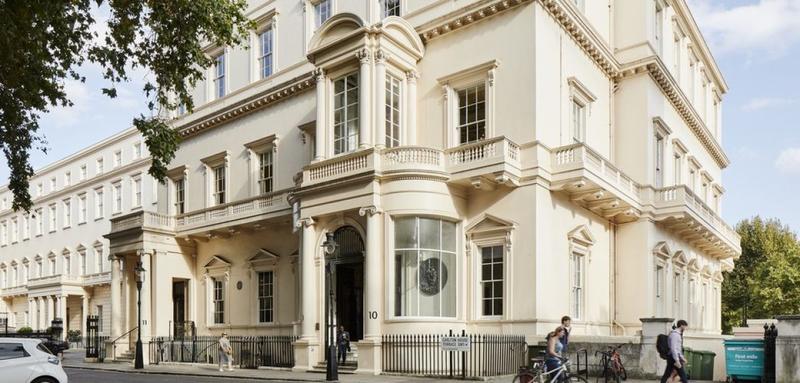Four Humanities academics elected British Academy Fellows

Four academics from four Humanities faculties have been elected as 2022 Fellows of the British Academy in recognition of their distinguished contribution to research. They are:
Professor Simon Gilson, Agnelli-Serena Professor of Italian Studies at the Department of Medieval and Modern Languages – a leading specialist on Dante, who works extensively on Renaissance Italian literary, intellectual and cultural history. He is best known for two pioneering books on the reception of Dante in Italy c.1350-1600, as well as his work on several funded collaborative projects that have produced major databases and digital resources. He is the current Chair of the Society for Italian Studies, the subject association for University teachers of Italian in the UK and Ireland.
He commented that 'it is a wonderful honour to be elected to the British Academy. The Academy has done truly remarkable work to support and stress the strategic importance of modern languages in the UK today, and it is a real privilege to become one of its Fellows'.
Professor Hilary Owen, Senior Research Fellow in the Sub-Faculty of Portuguese at the Faculty of Medieval and Modern Languages. Professor Owen's research focuses on contemporary Portuguese and Lusophone African literatures, cultures and cinema, with a particular focus on gender, feminism and postcolonial theory. She said, ‘I am honoured and delighted at receiving this recognition from the British Academy. I am very much looking forward to contributing to the vital work the Academy does, and to bringing my perspectives from Portuguese Studies.'
Professor David Willis, Jesus Professor of Celtic at the English Faculty and a member of the Faculty of Linguistics, Philology and Phonetics, investigates the principles of grammatical variation and change. He looks particularly at Celtic languages, especially Welsh, Slavonic languages and English. He is also interested in the ways in which digital humanities can inform historical linguistics, including the use of electronic corpora, geospatial techniques (GIS), and the use of social media to track linguistic change.
He said, ‘I am delighted and honoured to have been elected a fellow of the British Academy. The Academy has always done an enormous amount to support the humanities and social sciences, and my own research has benefited so much from its activities. I am greatly looking forward to becoming involved with its work over the coming years.’
Professor Mark Wynn, Nolloth Professor of the Philosophy of the Christian Religion, Faculty of Theology and Religion. His research focuses on the thought that religious traditions constitute extended experiments in human possibilities – and the belief that in some cases, the careful retrieval of those traditions can throw new light on contemporary questions about how to live well.
He said, 'I am very grateful to receive this honour, which is recognition at least as much of the position I hold at Oxford -- as Nolloth Professor of the Philosophy of the Christian Religion -- as it is of my research. The Fellowship will give new momentum to my work on the philosophy of the spiritual life, and enable me to develop further the themes I explore in my most recent book Spiritual Traditions and the Virtues: Living Between Heaven and Earth (Oxford University Press, 2020).'
Professor William Wood, Chair of the Faculty Board for Theology and Religion, added: "I am delighted that Prof Mark Wynn has been made a Fellow of the British Academy. His academic work demonstrates all the rigor and clarity associated with traditional philosophy of religion while remaining open to a variety of different approaches to the discipline. He is a wonderful addition to our Faculty and a valued colleague.”
Professor Dan Grimley, Head of Humanities at Oxford University, said, ‘I am delighted to see that four academics from the humanities have been newly elected Fellows of the British Academy. Professors Simon Gilson, Hilary Owen, David Willis and Mark Wynn are doing outstanding work in a broad range of fields. This reflects the depth and diversity of the research in our faculties of Medieval and Modern Languages; English; Linguistics, Philology and Phonetics; and Theology and Religion.’
Professor Almut Suerbaum, Chair of the Faculty Board for Medieval and Modern Languages, said: 'It is wonderful to see the work of two distinguished colleagues from the faculty recognised by the British Academy. Simon Gilson has just been awarded an AHRC grant for his project on 'Envisioning Dante' and is a leading voice for Italian Studies nationally and internationally; Hilary Owen collaborates in a large AHRC project on 'Leading Women in Portuguese and Spanish Cinema and Television'. Both will be powerful advocates for the importance of languages.'
Founded in 1902, the British Academy is the UK’s national academy for the humanities and social sciences. It is a Fellowship of over 1600 of the leading minds in these subjects from the UK and overseas. Current Fellows include the classicist Professor Dame Mary Beard, the historian Professor Sir Simon Schama and philosopher Professor Baroness Onora O’Neill. Previous Fellows include Dame Frances Yates, Sir Winston Churchill, Seamus Heaney and Beatrice Webb.
Welcoming the Fellows, the new President of the British Academy, Professor Julia Black, said, ‘I am delighted to welcome these distinguished and pioneering scholars to our Fellowship. I am equally delighted that we have so many new female Fellows. While I hope this means that the tide is finally turning for women in academia, there is still much to do to make the research world diverse and open to all.
‘With our new Fellows’ expertise and insights, the Academy is better placed than ever to open new seams of knowledge and understanding and to enhance the wellbeing and prosperity of societies around the world. I congratulate each of our new Fellows on their achievement and look forward to working with them.’


